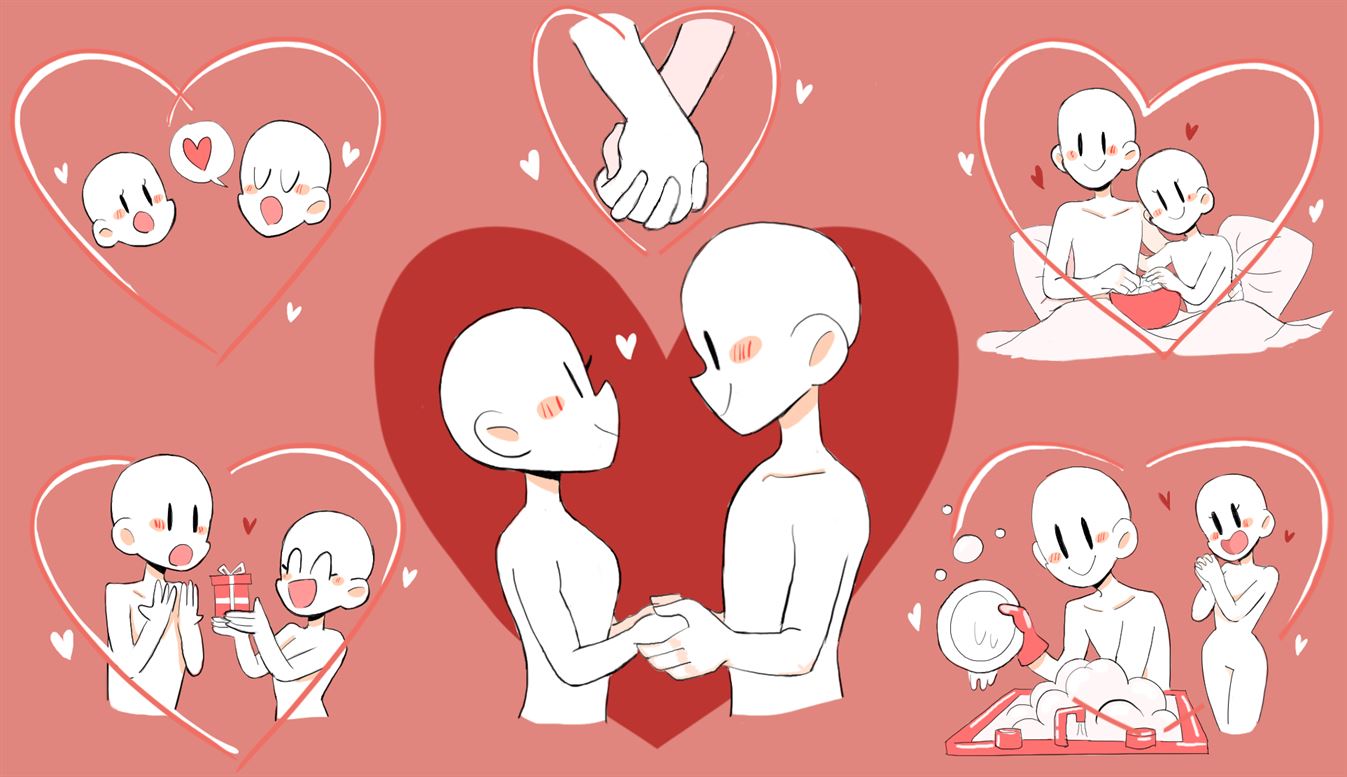Love is in the air — or is that the smell of yet another holiday that’s been commercialized beyond recognition? Either way, Valentine’s Day is almost here in all of its polarizing glory. Single people are either depressed or relieved, and those with partners are probably reading this and saying, “Oh crap, that’s this week?!”
Many couples feel pressured to drop exorbitant amounts of money on gifts or dinners, sometimes to mend a fraught relationship or prove the fervor of their love. But these kinds of expensive gestures can fall flat, leaving the receiving partner feeling overwhelmed and awkward while the giver feels their efforts are unappreciated.
If this sounds familiar, it could be that you and your partner have different love languages.
The concept of a love language originated from the book “The 5 Love Languages” by Gary Chapman, originally published in 1992. Chapman, who has since gone on to publish many more “love language” books geared toward some odd niches such as “military,” claims there are five love languages that people tend to identify with. According to him, they are words of affirmation, physical touch, receiving gifts, quality time and acts of service.
Whether they are conscious of it or not, the majority of people already know their preferred love language, the one they “speak,” in other words. If you feel the most loved or cared for when someone brings you a surprise coffee on their way home, your love language is probably receiving gifts. If holding hands with your partner is the most important part of your grocery shopping excursion, then it’s likely physical touch and so on.
Of course, it’s common and possible to have more than one love language, but there is usually one that carries the most significance for an individual. And while Chapman’s categories are nice and neat, love, like any other language, has its nuances beyond such compartments.
Some have even argued for a sixth love language: distance, or personal space. This may seem counterintuitive, but it makes sense given that many people would think themselves an exception to their partner’s need for alone time and in turn be offended by a request for space.
Knowing your love language and being able to identify what you need is important for any relationship. But it’s equally important that you know your partner’s love language and are able to speak it.
Let’s say your love language is receiving gifts, but your partner’s is words of affirmation. Instead of saying “I love you,” you give them a necklace for Valentine’s Day, which might make them feel like you’re trying to buy their affection or like you don’t care. Of course, that isn’t true at all, you do love them! But you’re expressing it in the way that means the most to you, not to them.
Now, instead of having a romantic evening, you’re trying to figure out what you did wrong, and your partner is insisting that you must not care if you can’t even tell them you love them.
You may not speak the same love language as your partner, but that doesn’t mean your relationship won’t work. It just means you’ll need to pay extra attention to what makes them the happiest. If it’s hard to tell, just ask them outright. It may feel strange, but chances are, they’ll appreciate that you want to get it right. After all, basic communication is necessary for any partnership, no matter what your respective love languages are.
When you’re in a relationship, especially if you spend a lot of time together, it can be easy to lose some of your identity and at the same time forget their individual status outside of the relationship as well. This person you are now calling your boyfriend, girlfriend, partner, etc., has led an entire life leading up to the moment they met you. In that time, they’ve become someone you have the privilege of getting to know and love.
Remember, people aren’t machines you put affection into in return for validation, sex or whatever it is you want from them. If you can’t take the time to learn what truly means the most to someone and show them you care, then you frankly shouldn’t be looking to enter into a relationship.
So before you take the plunge this Valentine’s Day and lavish your partner with expensive presents or regale them with an epic ballad, stop and consider if what you’re offering is more like something you would want from them. On the other hand, if you’re just thinking of putting some gas in their car and ordering Wendy’s (which honestly sounds pretty great), make sure that’s as meaningful a gesture to them as it is to you.
From everyone at The Montclarion, have a happy Valentine’s Day!



